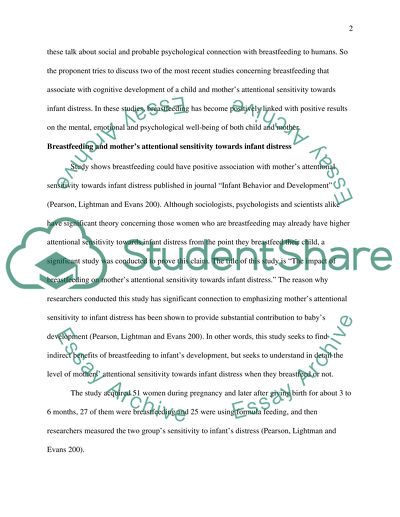Cite this document
(“Benefits of Breastfeeding Research Paper Example | Topics and Well Written Essays - 1000 words”, n.d.)
Benefits of Breastfeeding Research Paper Example | Topics and Well Written Essays - 1000 words. Retrieved from https://studentshare.org/psychology/1456743-benefits-of-breastfeeding
Benefits of Breastfeeding Research Paper Example | Topics and Well Written Essays - 1000 words. Retrieved from https://studentshare.org/psychology/1456743-benefits-of-breastfeeding
(Benefits of Breastfeeding Research Paper Example | Topics and Well Written Essays - 1000 Words)
Benefits of Breastfeeding Research Paper Example | Topics and Well Written Essays - 1000 Words. https://studentshare.org/psychology/1456743-benefits-of-breastfeeding.
Benefits of Breastfeeding Research Paper Example | Topics and Well Written Essays - 1000 Words. https://studentshare.org/psychology/1456743-benefits-of-breastfeeding.
“Benefits of Breastfeeding Research Paper Example | Topics and Well Written Essays - 1000 Words”, n.d. https://studentshare.org/psychology/1456743-benefits-of-breastfeeding.


